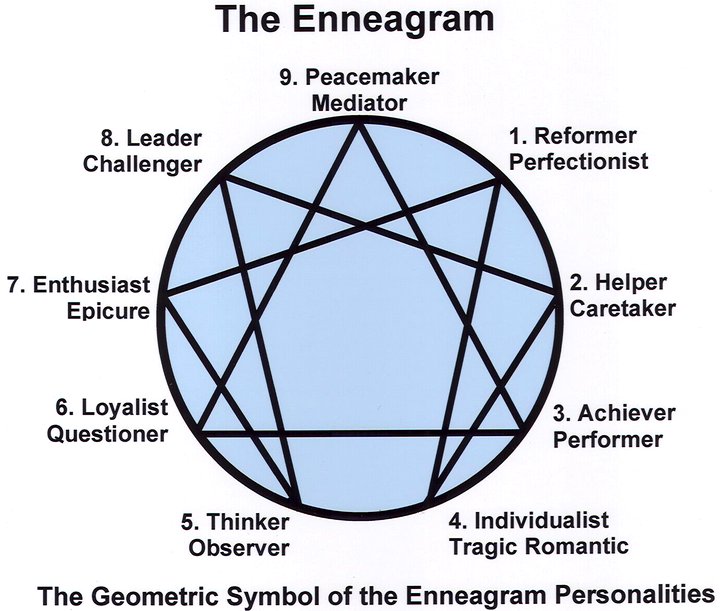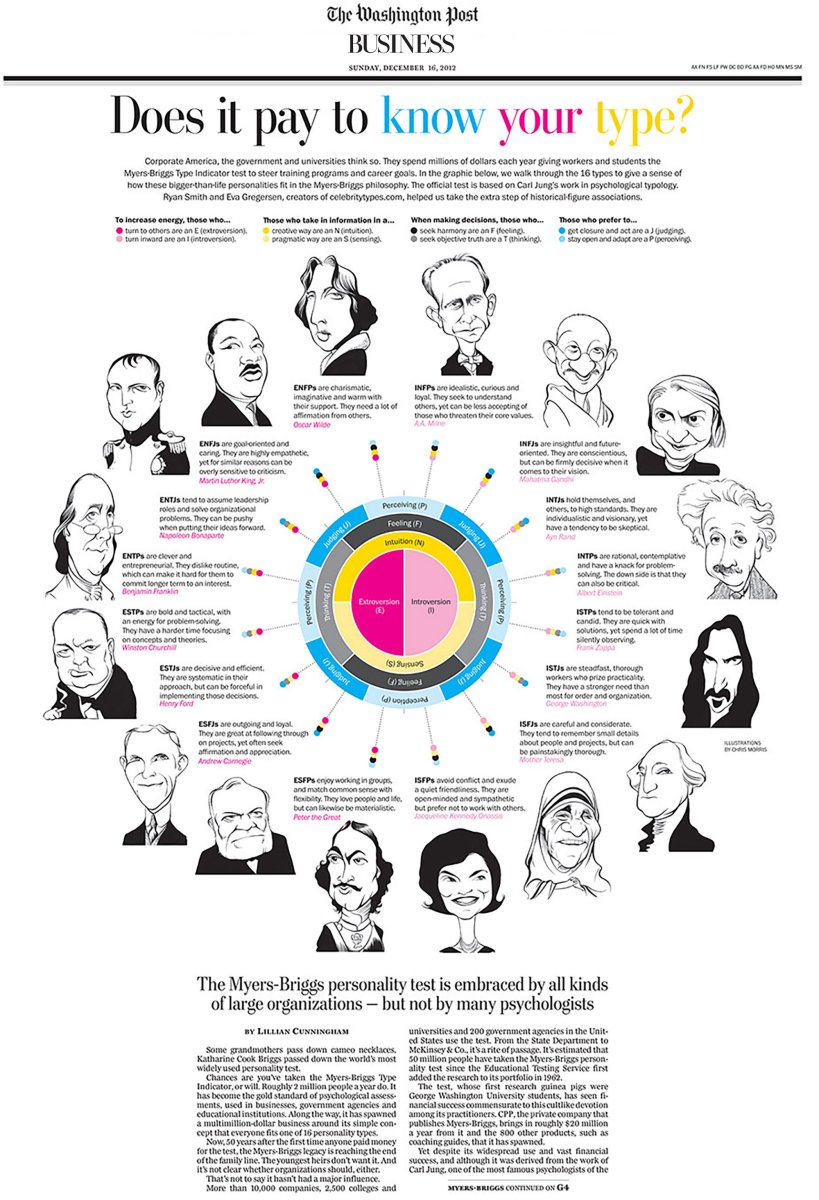

The table below offers some of the principal characteristics of the nine types along with their basic relationships. This table expands upon Oscar Ichazo's ego fixations, holy ideas, passions, and virtues[12] primarily using material from Understanding the Enneagram: The Practical Guide to Personality Types (revised edition) by Don Richard Riso and Russ Hudson.[13] Other theorists may disagree on some aspects. The types are normally referred to by their numbers, but sometimes their "characteristic roles" (which refers to distinctive archetypal characteristics) are used instead.[14] Various labels for each type are commonly used by different authors and teachers. The "stress" and "security" points (sometimes referred to as the "disintegration" and "integration" points) are the types, connected by the lines of the enneagram figure, that are believed by some to influence a person in more adverse or relaxed circumstances. According to this theory, someone classed as a One type, for example, may begin to think, feel and act more like a Four type when stressed, or more like a Seven type when relaxed.
| Type | Characteristic role | Ego fixation | Holy idea | Basic fear | Basic desire | Temptation | Vice/Passion | Virtue |
Stress/ Disintegration |
Security/ Integration |
| 1 | Reformer, Perfectionist | Resentment | Perfection |
Corruptness, imbalance, being bad |
Goodness, integrity, balance |
Hypocrisy, hypercriticism | Anger | Serenity | 4 | 7 |
| 2 | Helper, Giver |
Flattery (Ingratiation) |
Freedom, Will | Being unloved | To feel love |
Deny own needs, manipulation |
Pride | Humility | 8 | 4 |
| 3 | Achiever, Performer | Vanity | Hope, Law | Worthlessness | To feel valuable |
Pushing self to always be "the best" |
Deceit |
Truthfulness, Authenticity |
9 | 6 |
| 4 | Individualist, Romantic |
Melancholy (Fantasizing) |
Origin |
Having no identity or significance |
To be uniquely themselves |
To overuse imagination in search of self |
Envy |
Equanimity (Emotional Balance) |
2 | 1 |
| 5 | Investigator, Observer |
Stinginess (Retention) |
Omniscience, transparency |
Helplessness, incapability, incompetence |
Mastery, understanding |
Replacing direct experience with concepts |
Avarice | Non-Attachment | 7 | 8 |
| 6 | Loyalist, Loyal Skeptic |
Cowardice (Worrying) |
Faith |
Being without support or guidance |
To have support and guidance |
Indecision, doubt, seeking reassurance |
Fear | Courage | 3 | 9 |
| 7 | Enthusiast, Epicure |
Planning (Anticipation) |
Wisdom, Plan |
Being trapped in pain and deprivation |
To be satisfied and content |
Thinking fulfillment is somewhere else | Gluttony | Sobriety | 1 | 5 |
| 8 | Challenger, Protector |
Vengeance (Objectification) |
Truth |
Being harmed, controlled, violated |
Self-protection |
Thinking they are completely self-sufficient |
Lust (Forcefulness) |
Innocence | 5 | 2 |
| 9 | Peacemaker, Mediator |
Indolence (Daydreaming) |
Love | Loss, fragmentation, separation |
Wholeness, peace of mind |
Avoiding conflicts, avoiding self-assertion |
Sloth (Disengagement) |
Action | 6 | 3 |
